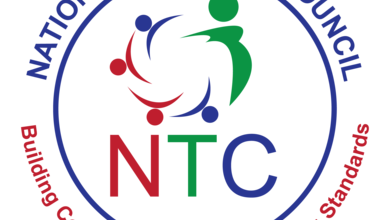What is the quickest way to become a Secondary School Teacher in the UK? / Salary 2024
What is the quickest way to become a Secondary School Teacher in the UK? / Salary 2024
Qualification to teach in SHS in Ghana
In England and Wales, you need a good first degree in the subject you plan to teach, plus a PGCE (Post Graduate Certificate in Education), which takes another year. Then once you’ve managed to get a job offer at a suitable school, you spend another year as effectively a teacher in training, with a reduced teaching load and under fairly close observation, before you can be fully qualified.
If you want to become a teacher in the UK, here are the simplified steps: QTS or iQTS 2023
We are there for Teacher Professional Development
CPD Points to be revised to 20 Points for all Ranks NTC Teachers and Stakeholders meeting Outcome
TO ASSIST YOU WITH YOUR QTS APPLICATION CONTACT 0550414552 OUR AGENT
2024 UK Teachers Salary per Hour / Month for Primary and Secondary Schools
YOU CAN JOIN OUR TELEGRAM WHATSAPP OR FACEBOOK PAGES
Read Also
KNUST Fees for Postgraduate Programmes; Check to prepare
Compare Fees; University of Ghana (UG) Postgraduate Programmes / Fees
UEW Mphil, Postgraduate Programmes, Specific Admission Requirements and Fees
UDS Undergraduate and Postgraduate Programmes / Fees for Decision-making
What qualifications do I need to become a secondary school teacher in the UK?
Secondary school teacher
Alternative titles for this job include High school teacher, sixth form teacher
Secondary school teachers teach children from 11 to 16, or up to 19 in schools with sixth forms.
Average salary (a year)
Salary
£28,000 Starter to
£43,685 Experienced
Typical hours (a week)
37 to 45 term time
You could work evenings attending events or appointments
Explore the different ways to get into this role.
You can get into this job through:
a university course
an apprenticeship
You can do an undergraduate degree that leads to qualified teacher status (QTS), for example:
Bachelor of Education (BEd)
Bachelor of Arts (BA) with QTS
Bachelor of Science (BSc) with QTS
Postgraduate certificate
If you already have a bachelor’s degree without qualified teacher status, you can complete a postgraduate certificate in education (PGCE). This can be done at university or through a training programme based in a school.
You do not always need to have a degree in the subject you’d like to teach. Your teacher training organisation will decide whether you have the required skills and knowledge to teach the subject.
You can sometimes do a subject knowledge enhancement course to improve your understanding of the subject you want to teach.
More teacher training options
There are more training options if you want to change career or specialise in teaching certain subjects.
Entry requirements
You’ll usually need:
4 or 5 GCSEs in grades 9 to 4 (A* to C), or equivalent, including English and maths
2 to 3 A levels, or equivalent, for a degree
a degree in any subject for a postgraduate course
Apprenticeship
You could do the Teacher Level 6 Degree Apprenticeship.
Entry requirements
You’ll usually need:
GCSEs in grades 9 to 4 (A* to C) in English and maths, a degree for a teaching apprenticeship
Work
You could start as a teaching assistant or learning mentor and do a part-time degree. You could then move on to a postgraduate teaching course to qualify as a teacher.
Volunteering
You might find it helpful to get some experience of working with young people.
You could volunteer at a school, do youth work or work on a holiday scheme.
You’ll usually need qualified teacher status (QTS) to teach in a state school in England
You’ll need:
knowledge of teaching and the ability to design courses
patience and the ability to remain calm in stressful situations
the ability to create the best conditions for learning or teaching new things
leadership skills
to be flexible and open to change
excellent verbal communication skills
maths knowledge
administration skills
to be able to use a computer and the main software packages competently
Restrictions and Requirements
You’ll need to:
pass enhanced background checks
Discover the day-to-day tasks you’ll do in this role.
Day-to-day tasks
In this role, you could:
prepare teaching materials, set up the classroom and organise displays
plan and teach lessons and work with small groups of students
mark work and talk to parents and carers about their children’s progress
manage the work of teaching assistants
follow safeguarding procedures and work with career advisers, counsellors, education
psychologists and social workers
organise trips, after-school clubs or exam revision classes
work and attend meetings and training outside of usual working hours
Working environment
You could work at a school, at a college, at a pupil referral unit or a special needs school.
Your working environment may be physically and emotionally demanding.
Look at the progression in this role and similar opportunities.
With experience, you could:
become a special educational needs teacher, further education teacher or move into pastoral care
become a specialist leader of education and support teachers in other schools
move up to be a curriculum leader, head of year, deputy head or headteacher
work for an exam board, or local education authority or work in a gallery or museum as an education officer
work freelance as a private tutor
Recommended
How to become a lecturer in Nigeria and Salaries
Requirements to be a University Lecturer in Ghana
The requirement to lecture in the college of Education (CoE) in Ghana
Credit;






